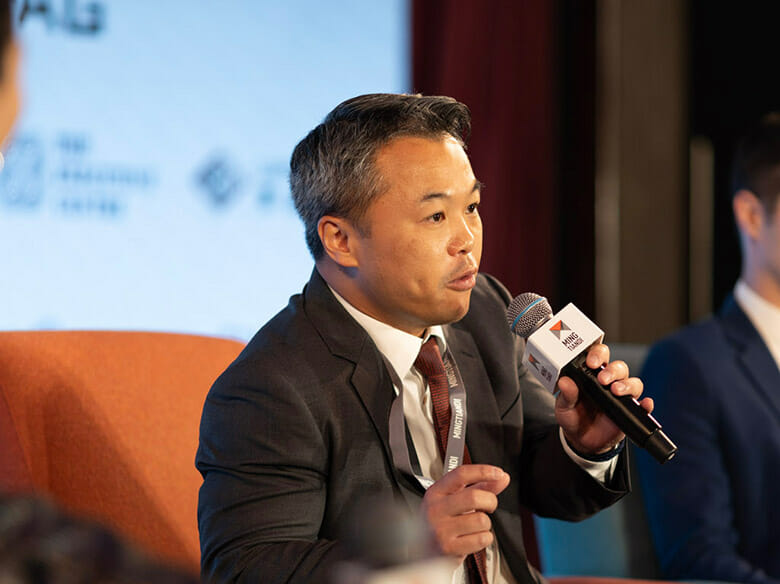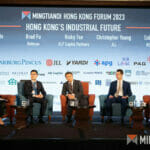Hong Kong’s ageing industrial stock is creating opportunities for developers and fund managers ready to create modern warehouses, cold chain facilities and self-storage ventures, according to senior executives speaking at an industry forum in the city on Tuesday.
“Some of the existing stock, whether it is ambient warehouse or cold storage, were (a product of) conversion from aged or old factory buildings. The ceiling height, the vertical circulation, the number of loading bays are all inadequate for modern logistics use but we just had to make do,” Ricky Tse, senior vice president for investment management at GLP Capital Partners, told the audience at Mingtiandi’s Hong Kong Focus Forum, indicating that the challenges of using these aging facilities opens the door for those able to provide more efficient alternatives.
“There’s a lot of potential in this space in Hong Kong, and hopefully, there are opportunities for GLP to participate in some of those,” Tse added.
Speaking at the same forum, which was sponsored by Yardi, Christopher Young, a senior director with JLL’s Asia Pacific capital markets team, said that with only around a quarter of the city’s industrial space meeting the requirements of top tenants, there are opportunities for investors able to offer higher grade facilities in Hong Kong.
Making a Difference
Citing JLL research data, Young said that of the city’s 200 million square foot stock of industrial space, only about 55 million square feet (5.1 million square metres) can be considered prime warehouses.

Ricky Tse of GLP Capital Partners
“A lot of the stock is actually not quite fit or the specs are not suitable for today’s modern needs of tenants and operators,” he said. “I think there are some ways to try to repurpose it, whether it is doing renovations structurally, or demolishing it and redeveloping it into something more modern.”
For US real estate fund manager Heitman, which a year ago embarked on a cold storage conversion play with its purchase of the New China Laundry building in Fanling, effective value-add strategies allow the company to enhance returns on investments in one of Asia’s priciest cities, according to Brad Fu, its head of acquisitions for Asia Pacific.
“We are trying to find the highest and best use for each of the locations and assets and that is being driven because of the higher capital values that we’re seeing in Hong Kong,” Fu told the audience of nearly 200 real estate professionals. “It’s the higher land costs in Hong Kong that drives us to put in more thought into our process and on business plan execution that extends beyond the traditional warehouse.”
Fu said some of Heitman’s self-storage investments in Hong Kong have yielded net per square foot rents which are on par with rates at premium grade offices in the city, which he attributed to effective management.
Landlords also have to consider factors including demographics and the potential for deploying more efficient technology when upgrading warehouses to meet rising demand in the city, said Collin Lau, founder and chief executive officer of property and alternative investment firm BEI Group.
“You need to think through how you actually add value to make a difference. In fact, you’re trying to compete with yourself because you’re trying to increase the efficiency of your supply chain,” Lau said.
Covering Hong Kong
The industrial panel was one of eight separate discussions at Mingtiandi’s inaugural Hong Kong Focus Forum, which kicked off with a keynote panel featuring top executives from APG Asset Management, Link REIT, WeWork and Cushman & Wakefield.
The full-day event also hosted exclusive interviews with PAG co-founder and chairman Weijian Shan, as well as with Ellen Ng, managing director and head of China real estate for Warburg Pincus. Following the on-location conference, MIngtiandi will be holding its fourth annual data centre forum via our MTD TV video platform in September, before returning to the physical stage in November for our second Singapore Focus Forum.












Leave a Reply